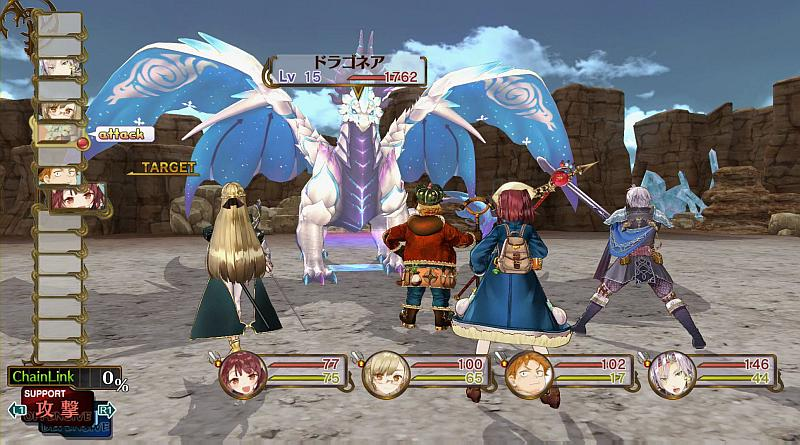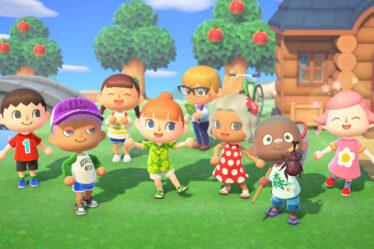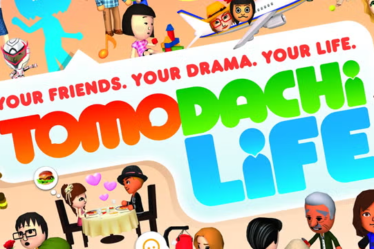
This article was originally published in Italian on Thegamesmachine.it in 2016.
Gust makes its debut on PlayStation 4, bringing with it the expertise gained over six installments of its Atelier series, previously released on Sony’s earlier home console. The intention to move away from past themes becomes evident right after the title screen of Atelier Sophie: The Alchemist of the Mysterious Book, likely in hopes of injecting fresh energy into this new beginning. The previous trilogy, commonly referred to as “Dusk,” set its protagonists’ adventures in a decaying world teetering on the brink of environmental apocalypse—a setting that clashed starkly with the lighthearted and relaxed atmosphere typical of other entries, which primarily focused on charming, slice-of-life narratives. With the Japanese animation industry having been flooded by the “moe” aesthetic and the “cute girls doing cute things” narrative trend, the video game counterpart of Japan’s creative output experienced a similar transformation.
The three Dusk prequels, which unfortunately saw disappointing sales in Japan, are now officially behind us. Atelier Sophie marks a cheerful return to a more carefree tone, with a slow-paced narrative devoid of any lofty ambitions. The cast, though not particularly remarkable, still manages to keep players company during ingredient-gathering expeditions. For those just tuning into this long-standing JRPG series, Atelier has been offering a gameplay experience centered on crafting since its debut on the original PlayStation—players create items and equipment through alchemy. Not surprisingly, every protagonist thus far has been defined by her magical cauldron skills, a core element that drives much of the gameplay.
Sophie inherits her craft from her grandmother and resides in the quaint town of Kirchen Bell, surrounded by friendly faces and a lush, explorable world. Her peaceful life takes an unexpected turn when she encounters a magical book capable of levitating and speaking, as if sentient. From this point, in a gradual build-up of side quests, crafting sessions, and encounters with other characters interested in setting up shop in Kirchen Bell, players are introduced to Plachta, a mysterious alchemist who lived 500 years earlier and whose soul has awakened for a specific reason.
What may seem like the story’s starting point or prologue is, in fact, almost halfway through the narrative. As a reminder, Atelier Sophie doesn’t aim to deliver an epic tale with extraordinary twists; rather, it immerses players in a bucolic fantasy setting, offering entertainment through a close-knit cast navigating the protagonist’s unusual circumstances. Sophie’s everyday life is the central pivot of the story, with no overarching theme beyond uncovering Plachta’s past and eventually facing an inevitable battle to preserve world peace. While this might not surprise long-time fans, it’s worth noting that, unlike previous entries, Sophie eliminates timed objectives and missable events, opting for greater accessibility. The only exception lies in the quests available at the Café, where players can also invest their earnings in gathering information about ingredients, bosses, and town residents.
The Dusk trilogy had already hinted at streamlining quests and making timed events more manageable with convenient indicators. In Sophie, this approach is taken to the extreme: it’s even possible to complete the game without needing a second playthrough. This shift toward simplicity extends to a crafting system that’s far more user-friendly than its complex predecessors, albeit still deep. Similarly, the turn-based combat system, an evolution of the one seen in the Dusk trilogy, feels less dynamic, relying heavily on automated actions. Players can position four characters in the arena, choosing between attack or defense stances for each command, which influences the automatic actions characters perform each turn. This regression might raise eyebrows, especially during later stages when exploring more dangerous areas, where alchemy takes precedence over strategic planning or battlefield skill.
The series’ layered gameplay remains intact, so much so that even after 20 hours of play, new mechanics are still being introduced through tutorials. In this regard, the late-game ability to upgrade equipment by combining alchemy with the skills of blacksmith Logy (!) and stylist Leon is crucial for surviving tougher battles. Still, nothing here should truly challenge series veterans, who can test themselves further with the additional “Despair” difficulty mode available from launch.
On the technical front, this latest installment is, in some respects, less ambitious than its predecessors but performs smoothly and looks incredibly polished on the PS4 version I tested. Atelier Sophie was designed with Sony’s portable console in mind, featuring the usual mix of high-quality illustrations and low-poly environments the franchise has offered since Atelier Rorona on PlayStation 3. The cel-shaded 3D character models look great, and the bold decision to feature two character designers—independent illustrators Yuugen and Noco—results in a cast with somewhat inconsistent appearances. However, this makes sense, as the only explorable city is a crossroads for people and adventurers from distant lands. Personally, I miss the character designs from the Ayesha/Escha & Logy/Shallie trilogy by Japanese illustrator Hidari, but that’s just a matter of taste. The soundtrack, on the other hand, feels underwhelming, though the inclusion of the Japanese voice track for the dub—a must for fans of the series and manga-style games—is a saving grace. Everyone else will have to make do with the mediocre English voice acting.
Atelier Sophie: The Alchemist of the Mysterious Book marks a new direction for the series, likely aimed at newcomers and designed to build a fresh fanbase after the decline in popularity coinciding with the Dusk trilogy. In some ways, this installment feels like it’s on autopilot, but the announcement of a sequel slated for release in Japan by the end of the year suggests this renewed approach is paying off. Time will tell.


